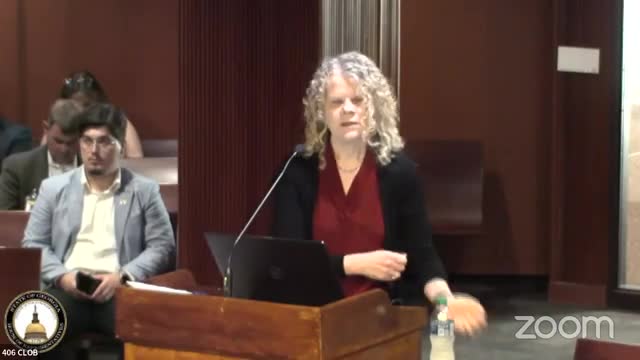UGA elevates AI research and teaching with major investments
August 16, 2024 | HOUSE OF REPRESENTATIVES, Committees, Legislative, Georgia
This article was created by AI summarizing key points discussed. AI makes mistakes, so for full details and context, please refer to the video of the full meeting. Please report any errors so we can fix them. Report an error »

In a recent government meeting, officials discussed significant advancements in artificial intelligence (AI) initiatives at the University of Georgia (UGA), highlighting a robust investment in faculty, research, and teaching methodologies. The meeting underscored UGA's long-standing commitment to AI, which dates back 40 years, and the establishment of the Institute for Artificial Intelligence as a central hub for interdisciplinary collaboration.
UGA has made substantial strides in faculty recruitment, aiming to hire 50 new faculty members specializing in AI and data science across various disciplines. So far, 49 positions have been filled, with an additional 20 positions added to focus on AI's applications in social sciences and education. This initiative has already begun to yield positive outcomes, including promising grant applications in teaching and learning.
The meeting also addressed the transformative impact of AI tools, such as Chat GPT-3, on higher education. Faculty members expressed initial concerns about the implications of AI on academic integrity but have since embraced the technology. UGA has organized workshops and symposiums to equip educators with the necessary skills to integrate AI into their teaching practices effectively. Notably, a recent two-day workshop attracted around 100 faculty members eager to learn how to incorporate AI into their pedagogy.
In addition to teaching initiatives, UGA is fostering research collaborations through events designed to connect newly hired faculty with existing researchers. The university has launched several interdisciplinary seed grants focused on innovative projects, including precision agriculture and ethical considerations surrounding AI technologies.
Recognizing student engagement, UGA held a generative AI competition, encouraging students to explore creative applications of AI. The winning project involved generating images of endangered species, showcasing the potential of AI in conservation efforts.
To further guide AI initiatives, UGA has established a leadership council tasked with developing policies and strategies to position the university as a leader in AI research and education. This comprehensive approach reflects UGA's commitment to harnessing AI's potential while addressing the challenges it presents in academic settings.
UGA has made substantial strides in faculty recruitment, aiming to hire 50 new faculty members specializing in AI and data science across various disciplines. So far, 49 positions have been filled, with an additional 20 positions added to focus on AI's applications in social sciences and education. This initiative has already begun to yield positive outcomes, including promising grant applications in teaching and learning.
The meeting also addressed the transformative impact of AI tools, such as Chat GPT-3, on higher education. Faculty members expressed initial concerns about the implications of AI on academic integrity but have since embraced the technology. UGA has organized workshops and symposiums to equip educators with the necessary skills to integrate AI into their teaching practices effectively. Notably, a recent two-day workshop attracted around 100 faculty members eager to learn how to incorporate AI into their pedagogy.
In addition to teaching initiatives, UGA is fostering research collaborations through events designed to connect newly hired faculty with existing researchers. The university has launched several interdisciplinary seed grants focused on innovative projects, including precision agriculture and ethical considerations surrounding AI technologies.
Recognizing student engagement, UGA held a generative AI competition, encouraging students to explore creative applications of AI. The winning project involved generating images of endangered species, showcasing the potential of AI in conservation efforts.
To further guide AI initiatives, UGA has established a leadership council tasked with developing policies and strategies to position the university as a leader in AI research and education. This comprehensive approach reflects UGA's commitment to harnessing AI's potential while addressing the challenges it presents in academic settings.
Don't Miss a Word: See the Full Meeting!
Go beyond summaries. Unlock every video, transcript, and key insight with a Founder Membership.
✓
Get instant access to full meeting videos
✓
Search and clip any phrase from complete transcripts
✓
Receive AI-powered summaries & custom alerts
✓
Enjoy lifetime, unrestricted access to government data
30-day money-back guarantee

